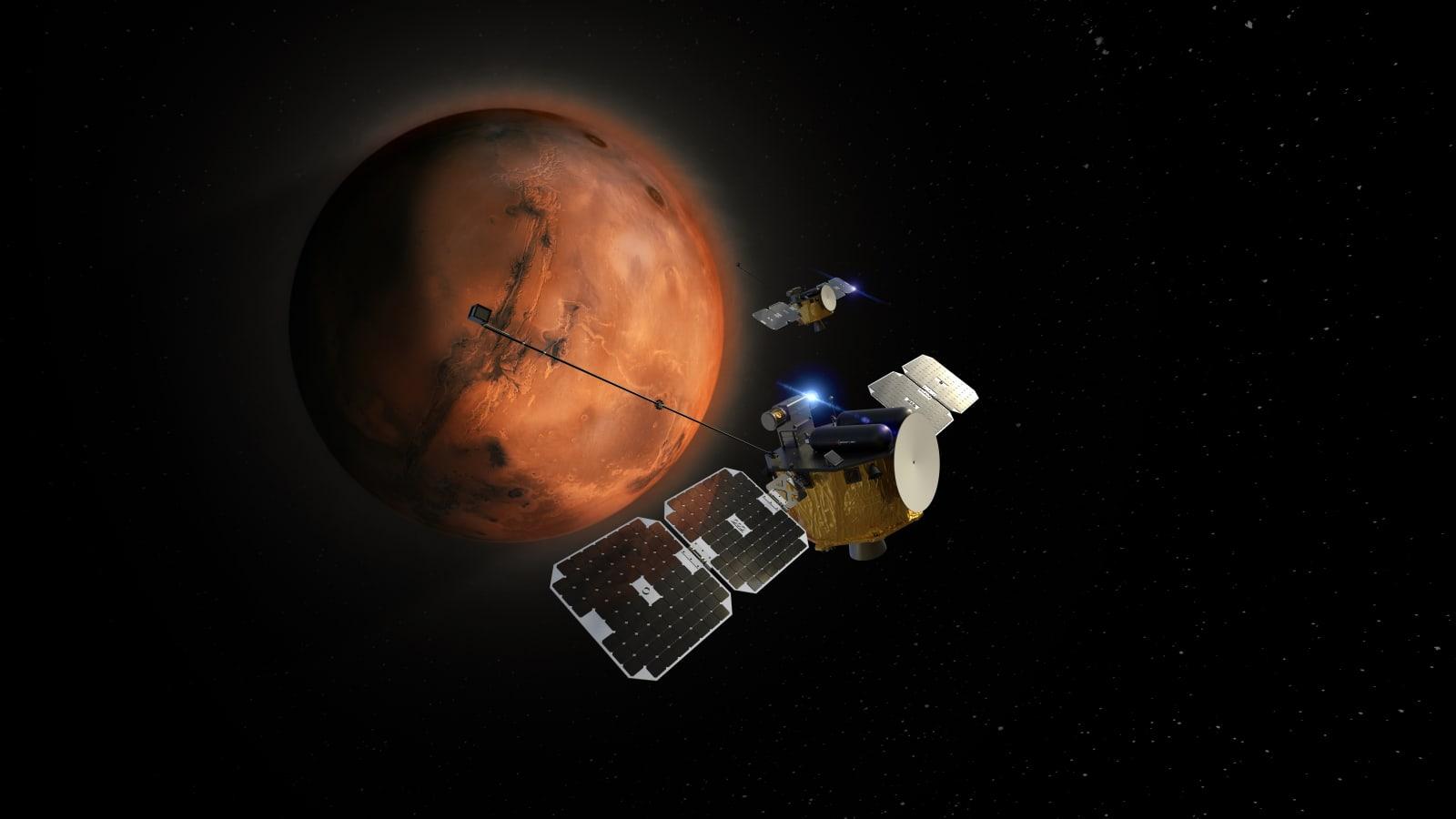
Artist's concept of Escapade.
A pair of 6U science satellites originally slated to piggyback a ride to Mars with NASA’s Psyche asteroid probe will instead launch aboard Blue Origin’s New Glenn, a two stage heavy-lift reusable booster still in development.
Terms of the contract, awarded on Feb. 9, were not disclosed, but U.S. government procurement data show NASA committing $20 million for launch support for the Escape and Plasma Acceleration and Dynamics Explorers (Escapade) mission.
Blue Origin is among 13 companies eligible to compete to provide launch services for low-budget NASA science missions under the agency’s Venture-Class Acquisition of Dedicated and Rideshare (VADR) program. NASA plans to spend up to $300 million on all its VADR contracts during a five-year ordering period.
NASA declined to say how many of the eligible VADR suppliers submitted proposals to launch Escapade under the program’s indefinite delivery indefinite quantity contract.
The Escapade cubesats originally were to fly with the Psyche asteroid probe aboard a SpaceX Falcon 9. But the Psyche mission was moved to a Falcon Heavy and the resulting trajectory change did not easily accommodate sending the Escapade satellites into Mars orbit. Escapade was dropped from the manifest in September 2020.
NASA and Blue Origin declined to say what, if anything, will ride with the Escapade satellites, each of which weigh less than 200 lb., on New Glenn, which is being designed to carry 13,000 lb. into a geostationary orbit (GEO).
By comparison, a United Launch Alliance (ULA) Delta V Heavy can carry 14,220 lb. to GEO and put 8,000 lb. on a trajectory to Mars.
Escapade’s launch is targeted for late 2024. The satellites, which are being built by Rocket Lab, would reach Mars orbit 11 months later.
Escapade is designed to study how the solar wind is driving molecules out of the Martian atmosphere and into space, a follow-on to NASA’s current Mars Atmosphere and Volatile Evolution (MAVEN) mission.
“We’re thrilled NASA’s Launch Services Program has selected New Glenn to launch the instruments that will study Mars’ magnetosphere,” Blue Origin’s Jarrett Jones, senior vice president for New Glenn, said in a statement.
Previous VADR launch contracts have been awarded to Phantom Space Corp., which won four task orders in November 2022 for cubesat missions; and to Rocket Lab to launch the remaining satellites in the planned Time-Resolved Observations of Precipitation structure and storm Intensity with a Constellation of Smallsats (Tropics) program. The first two Tropics satellites were lost in June after a failed launch of Astra’s Rocket 3.3, which has since been discontinued. In addition to Blue Origin, Astra, Phantom Space and Rocket Lab, companies eligible to compete for VADR task orders are ABL Space Systems, L2 Solutions, Northrop Grumman, Relativity Space, Spaceflight, SpaceX, ULA, Virgin Orbit and Firefly Space.





